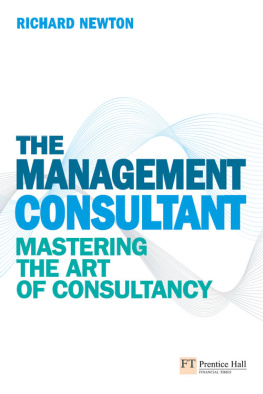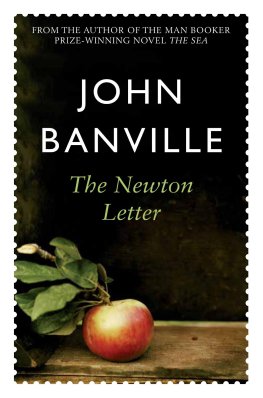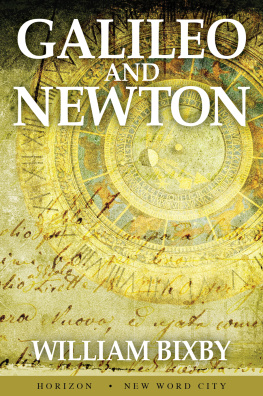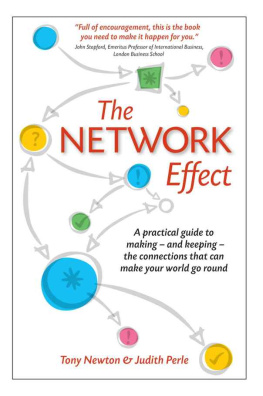NEWTON - Management Consultant
Here you can read online NEWTON - Management Consultant full text of the book (entire story) in english for free. Download pdf and epub, get meaning, cover and reviews about this ebook. year: 2010, publisher: Pearson Education Limited, genre: Business. Description of the work, (preface) as well as reviews are available. Best literature library LitArk.com created for fans of good reading and offers a wide selection of genres:
Romance novel
Science fiction
Adventure
Detective
Science
History
Home and family
Prose
Art
Politics
Computer
Non-fiction
Religion
Business
Children
Humor
Choose a favorite category and find really read worthwhile books. Enjoy immersion in the world of imagination, feel the emotions of the characters or learn something new for yourself, make an fascinating discovery.
Management Consultant: summary, description and annotation
We offer to read an annotation, description, summary or preface (depends on what the author of the book "Management Consultant" wrote himself). If you haven't found the necessary information about the book — write in the comments, we will try to find it.
Management Consultant — read online for free the complete book (whole text) full work
Below is the text of the book, divided by pages. System saving the place of the last page read, allows you to conveniently read the book "Management Consultant" online for free, without having to search again every time where you left off. Put a bookmark, and you can go to the page where you finished reading at any time.
Font size:
Interval:
Bookmark:
Richard Newton is an author and business adviser. He worked for the management consultancy practices of Cooper & Lybrand, Ernst & Young, and A. T. Kearney, and continues to provide consultancy through his own company, Enixus. Richard has worked with many professional services firms on major projects, and has helped a number of firms with engagement processes and service line definitions. He is the author of several books including Managing Change Step by Step and The Project Manager .

This book is dedicated to my son Konrad for inspiring me to write the book, when he admitted that he really did not have the faintest idea what I did.
I would like to thank five consulting colleagues who I started working with years ago in Coopers & Lybrand. Although our careers have moved on in different ways, we still work together from time to time. More often we meet up, share stories and enjoy laughing about the occasionally pretentious side of the profession. They are: Graham Jump, Peter Meredith, Perry Childs, Richard Ellis and Andy Macey.
This book is a personal guide to the art of management consulting. It sets out to help new and experienced consultants to do one thing: to become better consultants. In simple terms, better means providing help that is of the most long-term value to your clients. The approach is also simple: to identify what it is that the best consultants do that their less effective colleagues do not and how you can do it, too. Underlying this is my belief in client-centric consulting .
The contents are derived from three sources. The first source is my experience as a consultant (working for Coopers & Lybrand, A.T Kearney, Ernst & Young and my own company Enixus). Secondly, my experiences in industry as a client negotiating, buying and managing consultants. Finally and most importantly, I have a network of trusted consulting colleagues whose ideas have flavoured the book. Like a magpie I have picked up ideas and concepts throughout my career. I have shifted through them, throwing away most, keeping hold of the ones I like and think are precious. Many ideas in this book are my own, but of course I have learnt from others. I cant remember the sources of all of these, so I am sure more credit is deserved than I have given.
There were several reasons for writing this book, but two of them stand out. Firstly, there are comparatively few books on consulting, unlike many other management disciplines. Look at the business book selection in a good bookshop or online, and you will find many on strategy, leadership, marketing, delivering change and project management, to name a few areas. But consulting books are relatively scarce, scarcer than an industry of its size justifies. There are a few good books on consulting, but they do not approach the audience in the way I want to.
The second reason comes down to my frequent frustration when I work with or engage other consultants. The simple truth is that the profession often does not live up to its own hype. This is not to deny that there are many brilliant consultants out there, and I have been lucky enough to work with and learn from a few of them. But there are many consultants who know they should be better to justify their fees. Worse, there are some very mediocre consultants who mistake being paid a lot with being good. As supposed experts in business, it is amazing how often consultants provide inadequate value to their clients.
Management consulting is a large and very varied industry. The range of skills and services that fall under this title are huge. The difference in the type of work of the most expensive strategy houses compared to a project management consultant is so great that they may not even recognise each other as being in the same profession. There are some books that set out to address components of this industry. They tend to describe various tools and techniques of consulting. The best tools and techniques are only applicable in some situations and even if you know them it does not make you necessarily an effective consultant. I wanted to write a book for all management consultants.
The book contains tools and techniques, but it is also intended to make you think like a consultant: how do effective consultants think about their work and their clients? Consulting experiences are varied, and each is unique. By thinking like a consultant, irrespective of the situation you are in, you will be able to deal with any situation in the most effective way.
Ask someone in business to define the title management consultant, and you will get a wide variety of responses, not all of them complimentary! The title covers an extensive range of roles providing a variety of services. There are no universally recognised standards for being a management consultant and as a result there are very varying levels of quality. In addition, many people want to be management consultants but do not know what it entails.
There are many consulting success stories, and numerous people have become comfortably well off as consultants. Given this success, it might be thought that the world was full of praise for management consultants. Yet, if you ask many customers in the private and public sector about their feelings and experiences of consultants, you will often be met with sceptical and even highly negative comments. There are numerous causes for these responses, but they can be summarised into three major categories. Firstly, too many consultants simply do not provide sufficient value to their customers and rely on churning out the same old work time and time again. Secondly, even good consultants with valuable knowledge often fail to understand true client needs. Thirdly, it is unfortunate to say, but there seems to be a number of very poor management consultants. This problem is compounded by the already mentioned lack of widely recognised standards for consultancy which can be used to judge or benchmark consultants against.
A key reason for the negative perception of consulting is the fact that too many consultants are focused on what they have to offer and how they make money, rather than what clients need. Too many consultants provide context-free and generic advice, whereas what clients need is advice that is tailored to their specific culture and context. Overall, too many consultants spend too much time trying to be clever, rather than asking themselves what actually makes a good consultant?
This book will describe those factors that make good consultants and how consultants can go about providing client-centric consulting . It describes consulting from the viewpoint of the client, and so will help consultants understand what will make them successful. The book will help in deciding on how to provide the most appropriate services and advice to clients. Rather than considering the tools and processes of consulting, as most other consulting books do, it focuses on the skills of successful consultants what they do that makes them successful, success in this context being defined as client results, not only in terms of financial returns for the consultant. Finally, the book contains many tips from the authors and his colleagues years of experience in consulting.
There is a huge number of management consultants and business advisors of one form or another. Management consultancies have been one of the great business success stories of the past 40 years, with some now employing tens of thousands of people in worldwide businesses, delivering significant profits to shareholders and partners. At the other end of the scale there are thousands of small consultancies and independent consultants. As employment patterns change, more and more people are choosing to work as consultants.
Font size:
Interval:
Bookmark:
Similar books «Management Consultant»
Look at similar books to Management Consultant. We have selected literature similar in name and meaning in the hope of providing readers with more options to find new, interesting, not yet read works.
Discussion, reviews of the book Management Consultant and just readers' own opinions. Leave your comments, write what you think about the work, its meaning or the main characters. Specify what exactly you liked and what you didn't like, and why you think so.
















